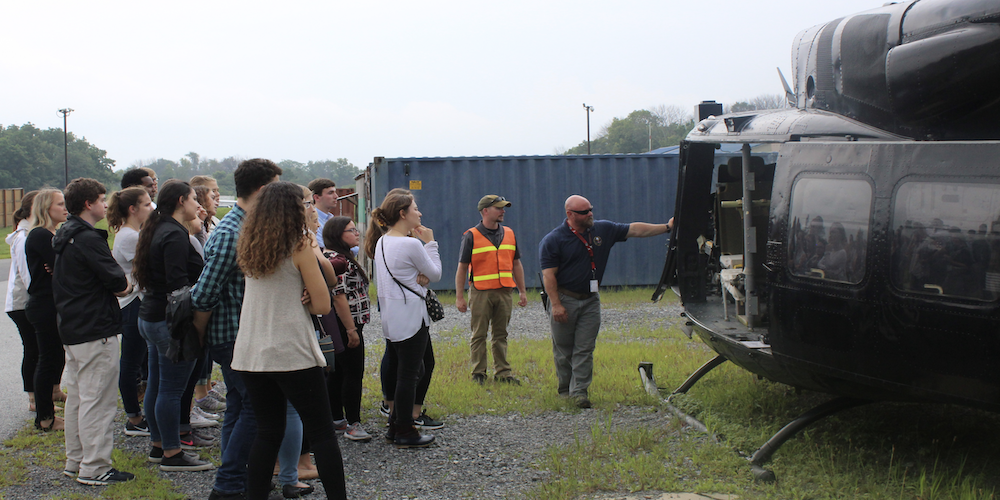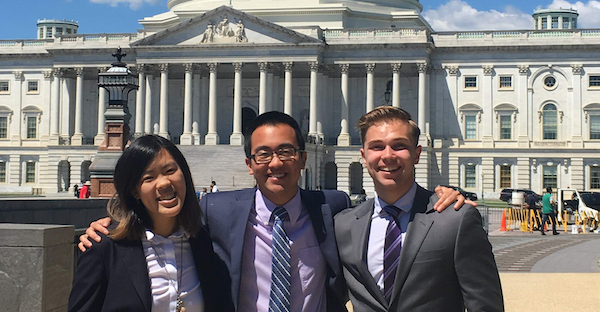A State Department Internship Showed Why Diplomacy Isn’t for Me
The transient diplomatic lifestyle and exhausting bureaucracy outweighed the prestige of a Foreign Service career.

My dream had come true. Meeting and talking to career diplomats who had served around the world — and just walking the halls of the State Department — was thrilling. My excitement built further as I read diplomatic cables from U.S. embassies and engaged on topics I had previously only read about in books. That summer internship in 2018 was a major highlight of my college career. But more than anything, it helped me figure out what I didn’t want to do. I decided that diplomacy wasn’t for me.
During my junior year in college, family and friends began asking what I wanted to do with my life. Like many of my peers, I didn’t know. I majored in political science and loved international relations and comparative politics courses. I wanted to try working for the government, especially the State Department. As an immigrant from Indonesia, I thought how cool it would be to represent my adopted country as a diplomat.

Cliff Djajapranata (center) with fellow 2018 State Department interns Chloe Chang and Luke Henter on Capitol Hill in Washington, D.C. Photo courtesy of Cliff Djajapranata.
Months after applying for an internship, I was accepted. I’d be given an opportunity to apply my college studies to the real world and even have security clearance. I couldn’t wait to get to Washington, where I was assigned to the Bureau of Conflict and Stabilization Operations. I quickly gained a good understanding and appreciation for the work diplomats do. All sorts of positive emotions surged through me.
Yet something didn’t completely connect. I wanted to love it. I wanted to tell myself and others at the end of the summer, “I know what I’m going to do with my life.” But I couldn’t. I enjoyed the internship and was grateful for the experience and the amazing people I connected with, but I knew the diplomatic life wasn’t for me. It wasn’t just because I couldn’t relate to one Foreign Service officer’s excitement about serving in Iraq. Even far from war zones, the transient lifestyle diplomats endure pushed me away.
While some enjoy living abroad and the breadth of new cultural experiences, moving to a new country every few years wasn’t what I had in mind for my life. I wanted to have roots and be part of the fabric of a place for years. I wanted to know where home was, to have a physical space and a community my future family would also call home. I met several Foreign Service officers during my internship who had both thriving careers and family lives. For some, the tradeoffs and separations are worth it. Not for me.
Diplomats make an impact every day, and I wanted to feel that same sense of accomplishment and satisfaction in my work. The numerous layers of bureaucracy, however, made it very difficult. For example, when I drafted communications products showcasing the bureau’s work, my supervisor edited them, and I thought the drafts were ready to go. I was wrong. We still needed approvals from more people in the bureau, other State Department bureaus and officials at the Department of Defense and the U.S. Agency for International Development. I doubted anything could get done in a timely manner when there were so many hoops to jump through.
This bureaucracy is a necessary, albeit sometimes messy and frustrating, part of our government. We need our institutions to pursue unified strategies in order to have effective policies, and to follow rules that ensure the government is accountable. But navigating the complex ways of the system wasn’t what I wanted in a career.
As my college graduation drew closer, I still had no idea exactly what I wanted. My experience as a State Department intern enhanced my interest and experience in foreign policy and strategic communications and helped me realize what I didn’t want. I wanted to work for a smaller organization, at least in my first job, and not be constrained by a large bureaucracy that was exhausting to navigate. That meant more to me than the prestige of being in the Foreign Service.
After my internship, I thought that, because I didn’t find my dream career at the State Department, work in foreign policy wasn’t in my cards. I was wrong. My high school journalism experience, coupled with my internship in strategic communications, made me realize I could best contribute where I could meld these two interests and strengths. It took some time, but I found the right fit. Working for the Carnegie Endowment for International Peace, the oldest foreign-policy think tank in the United States, gives me the best of both worlds.
My internship didn’t inspire me to become a diplomat, but I will always value the time I spent at the State Department. I honed my communications skills, expanded my network of foreign policy contacts and learned about what motivates the Foreign Service. Sometimes, though, realizing what you don’t want can be just as valuable as finding something you do want.
Cliff Djajapranata is a communications assistant at the Carnegie Endowment for International Peace in Washington, D.C.

